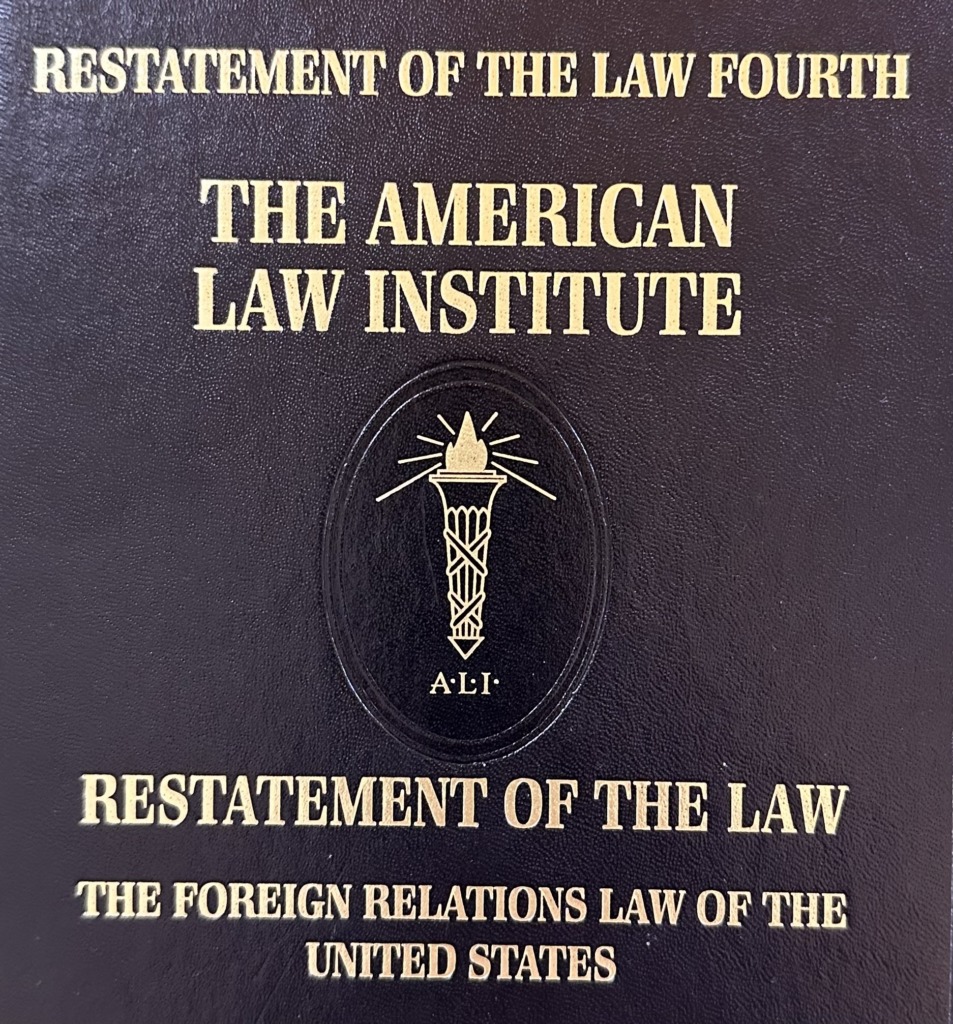Florida Man Seeks Enforcement of Forum Selection Clause
One of the internet’s more enduring memes is that of Florida Man. Florida Man is famous for “performing irrational, maniacal, or absurd actions in the U.S. state of Florida.” Over the years, Florida Man has attacked his neighbor with a tractor, been trapped in an unlocked closet for two days, fed iguanas to alligators in…
Continue ReadingD.C. Circuit Holds that Whistleblower Provision Does Not Apply Extraterritorially
In Garvey v. Administrative Review Board, the D.C. Circuit held that a whistleblower provision in the Sarbanes-Oxley Act did not apply to alleged retaliation against an employee in Hong Kong by a subsidiary of a U.S. investment bank. The opinion carefully applies the Supreme Court’s two-step framework for the presumption against extraterritoriality to the whistleblower…
Continue ReadingCentral Bank Immunity, Afghanistan, and Judgments Against the Taliban
International law and U.S. foreign policy provide powerful reasons to require clearer direction from the political branches before ordering the turnover of Afghan central bank assets to U.S. judgment creditors. [This post also appears on Lawfare]. Afghan central bank assets in the United States were frozen by President Biden following the Taliban’s takeover of the…
Continue ReadingHome Isn’t Just Where the Nerve Center Is
An opinion last month issued by a Texas appellate court illustrates a tempting but potentially dangerous doctrinal shortcut: applying a test developed for subject matter jurisdiction to the analysis of general personal jurisdiction. The diversity statute (28 U.S.C. § 1332) defines a corporation’s citizenship as its place of incorporation and its “principal place of business”…
Continue ReadingA Primer on Service of Process
Serving process on a defendant does two things: (1) it asserts the court’s authority over the defendant; and (2) it provides the defendant with notice of the lawsuit. In the United States, process can be served by private parties. But many foreign states regard service as a public act that can be done only by…
Continue ReadingThe Media Coverage of Turkiye Halk Bankasi, in Review
Last week, the Supreme Court heard oral arguments in Turkiye Halk Bankasi A.S. v. United States, a criminal case originating in the Second Circuit. The defendant, Turkiye Halk Bankasi A.S. (“Halkbank”), is a foreign state-owned commercial bank, headquartered in Istanbul, and a subsidiary of the Turkish government’s sovereign wealth fund. Charged with laundering over $1…
Continue ReadingNew Scholarship on Anti-Suit Injunctions
Raghavendra R. Murthy, outgoing Editor-in-Chief of the Vanderbilt Law Review, has published a note on antisuit injunctions and patent litigation: Why Can’t We Be FRANDs?: Anti-Suit Injunctions, International Comity, and International Commercial Arbitration in Standard-Essential Patent Litigation. The note explores the rise of anti-suit injunctions related to the licensing of “standard-essential patents.” Owners of such…
Continue ReadingIs Buying Fighter Jets a Commercial Activity?
The Foreign Sovereign Immunities Act (FSIA) allows actions against foreign states to be brought in U.S. courts based on their commercial activities. In Republic of Argentina v. Weltover (1992), the Supreme Court held “that when a foreign government acts, not as regulator of a market, but in the manner of a private player within it,…
Continue ReadingA New Frontier for Extraterritorial Disclosure Orders in England & Wales
In October 2022, an amendment to the Civil Procedure Rules in England established a new jurisdiction for limited extraterritorial disclosure orders (“information orders”). While the High Court of Justice (the “High Court”) had made steps (in ex parte applications) towards the granting of such orders in the last few years, the new rules and a…
Continue ReadingAmerican Law Institute Launches Second Phase of Restatement (Fourth) of Foreign Relations Law
Yesterday, the Council of the American Law Institute (ALI) approved a project to complete the Restatement (Fourth) of the Foreign Relations Law of the United States. The project will be chaired by John Bellinger and Harold Koh. Curt Bradley, Bill Dodge, and Oona Hathaway will serve as reporters. The first phase of the Restatement (Fourth)…
Continue Reading




